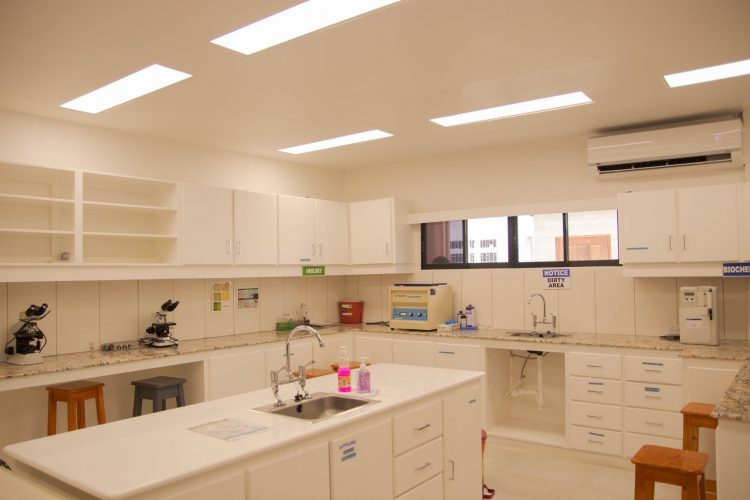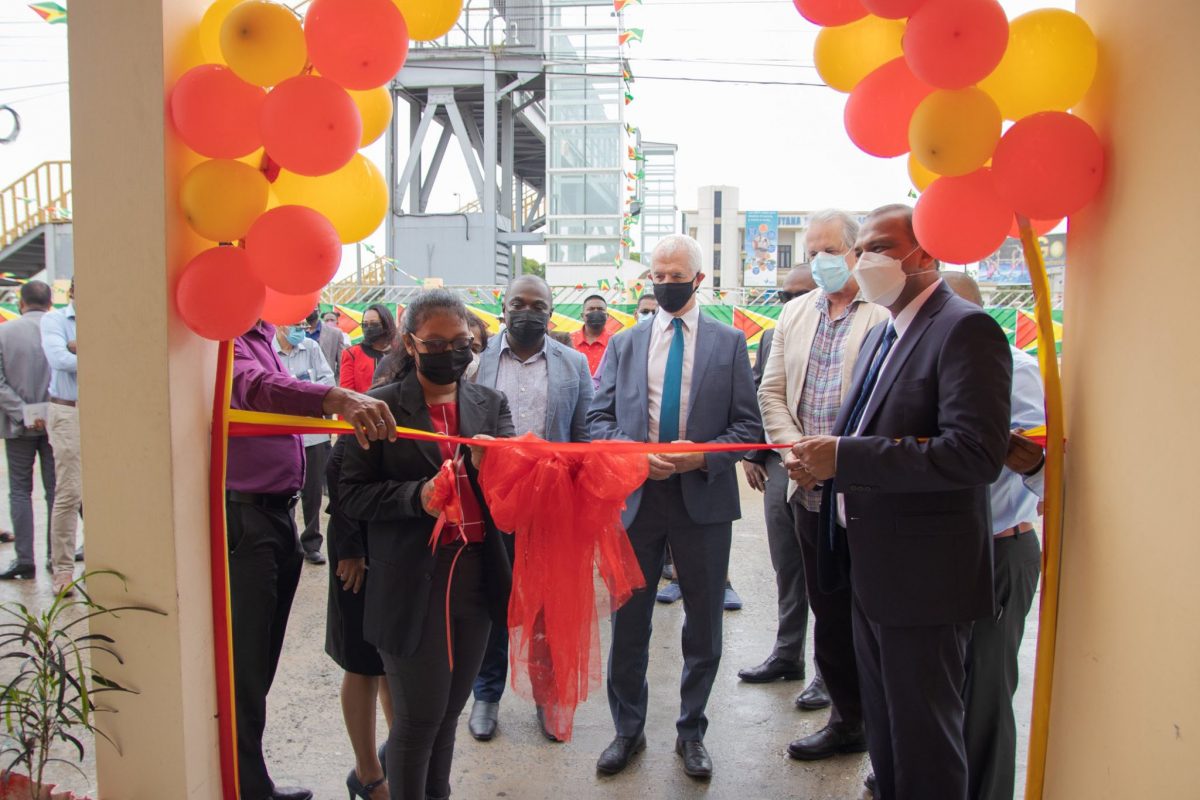The Diamond Hospital was yesterday re-commissioned by the Ministry of Health to fully serve residents living on the East Bank Demerara after over GY$200 million in upgrades undertaken under the ‘Smart Health Care Facilities in the Caribbean’ project.
The hospital, which was temporarily closed for the retrofitting project to be done, was re-commissioned with a brief ribbon cutting ceremony. Occurding to the Minister of Health Dr Frank Anthony, it will be the main referral facility on the East Bank Demerara highway.
The hospital is one of the five health facilities identified under the former government for upgrading under the Smart project, with funding from the United Kingdom’s former Department for International Development through the Pan American Health Organization (PAHO/WHO) in conjunction with the Ministry of Health.

The project saw health care facilities redesigned for disaster safety and to optimise energy consumption through green interventions. The other facilities that have benefitted are the Leonora Diagnostic and Treatment Centre, the Mabaruma Hospital, the Lethem Hospital and the Paramakatoi Health Centre.
British High Commissioner Ross Denny said the UK contributed $222 million to the Diamond upgrade. The construction, pegged at US$984,439, was carried out by Raffik and Sons Construction between May 26, 2020 and March 26, 2021, a period much shorter than the originally intended deadline of May 26, 2021.
Dr Gavinash Persaud, the Regional Health Officer for Region Four, noted that the facility is built to fit a disaster management plan which relies on resilience and safety. It is also environmentally-friendly with back-up power that uses renewable energy, water reserve and efficiency, thereby reducing its carbon footprint and pollution. He noted that these upgrades will reduce operational cost.
With a staff of 20 doctors and 58 nurses, the hospital is expected to reduce patient load at the Georgetown Public Hospital.
Anthony said that it will provide 24-hour emergency services for outpatients and now houses departments for obstetrics and gynecology, so pregnant women can deliver at the hospital. The facility will also ofter surgeries, pediatric care, orthopaedic services, auxiliary services such as X-ray ultrasound, and pharmacy and laboratory services.
While noting the World Health Organization’s reports on the effects of climate change, Anthony said the government has developed the low-carbon development strategy and continues to expand upon that strategy to ensure that facilities will be climate resilient.
In doing so, Dr Anthony said, the government has already done assessments of 89 other health facilities in Guyana and “as we roll out our repairs and building programme for these other facilities over the coming years, we are going to ensure that we build them to become more climate resilient because this is absolutely necessary in the environment.”






